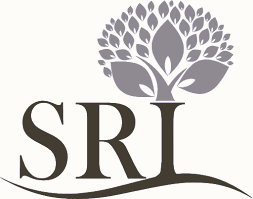The Family Literacy Project
Why is family literacy so important to our society?Learn More
What is Family Literacy?
Overview
We know that the family is the most powerful influence on individuals and society. This is why there is such an urgent need for understanding the ways in which family and family influences are interwoven into all parts of the social, cultural, spiritual, and political fabric of society.
However, despite these truths, our team, along with many family researchers, have observed that a family lens or family perspective is not always used by local, community, or global organizations across areas of education, journalism, entertainment, public policy, law, humanitarian action, economic and government affairs. When it comes to addressing challenges, a holistic, full family approach to issues is not always utilized or developed to its full potential.
Instead, our culture tends to view people as individuals, separate from their families—and not part of a family. This means that not enough people view the world through a family lens, and they don’t always ask about how things will affect families when discussing ideas, trying to solve problems—and especially in educating children, youth and young adults.
Why is this? And why does it matter?
Over the past several decades and the past few years in particular, we’ve all seen the very tangible consequences of this lack of understanding about the family’s role in society. More and more, the world is neglecting a family-oriented lens in public life. In other words, there is a growing lack of literacy about the family—what our team calls “family literacy.”
Whether we realize it or not, this lack of family literacy affects all our lives in very real ways. But perhaps the most compelling consequence is that the role of the family becomes devalued in public life. When there is a lack of literacy about the family’s indispensable role in creating and maintaining strong, stable societies, the result is that marriage and family become devalued. This, in turn, creates a devaluation of the family’s unique role in nurturing, protecting, and valuing children. The brunt of this burden is being born by those who are the least able to bear it: children.
We’ve seen this play out in significant ways on the global stage over the years, but we’ve also seen it play out closer to home with our families, friends, communities, and churches, where the influence of entertainment, academia and social media are obscuring the critically important roles that healthy marriages and families play in public life.
Definition of Family Literacy
The following definition of family literacy has been expanded and reconceptualized by our team to help students, educators, and lifelong learners gain a more holistic understanding of the family and its role in the human experience:
Family literacy entails the ability to discern and analyze the fundamental intersections of the family and social/political/cultural life through a “family lens.” Specifically, a family-literate person will possess 1) a basic understanding of the history, central texts, beliefs, practices as they continue to be shaped by particular social, historical and cultural contexts; and 2) the ability to discern and explore through a “family lens” dimensions of social, historical and cultural expressions across time and place.
Critical to this definition is the importance of understanding family and family influences in context, and how they are inextricably woven into all dimensions of the human experience.
Guiding Questions
1. What happens when we begin to see the world through a family lens?
2. How might family literacy help solve complex societal problems?
3. What happens when we better understand the important roles that mothers and fathers play in creating healthy families with strong, resilient children?
4. What does family literacy look like in action? What would it look in your own family, community, or nation?
5. How might improved family literacy make the world a better place?
Our Goal
Our goal is to improve public understanding about why families—especially strong families—are so critical to the wellbeing of individuals and society. We believe that improving public understanding of families (“family literacy”) will help provide clarity, consistency, and effectiveness whenever anyone is communicating or teaching about the important roles that family and family influences play in society.
